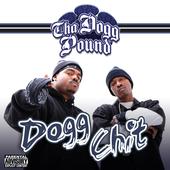Though Dr. Dre, Snoop Dogg, and 2Pac may have stolen the spotlight, tha Dogg Pound played an important role in the success of Suge Knight's Death Row empire before the duo moved on to solo careers. Dogg Pound members Daz Dillinger and Kurupt aided in the success of the both Dr. Dre's The Chronic (1992) and Snoop Dogg's Doggystyle (1993) before finally getting the chance to work on their own album, Dogg Food (1995). Following their solo release, tha Dogg Pound remained prolific as both Daz and Kurupt went on to record solo albums, the former also producing a number of tracks for 2Pac's All Eyez on Me (1996) and Snoop's Tha Doggfather (1996). Unfortunately, the duo's lack of substantial commercial success and the subsequent downfall of Death Row brought about tha Dogg Pound's demise at the end of the '90s, and Daz and Kurupt decided to concentrate on their respective solo careers.In the beginning, Daz and Kurupt were two of several artists on the Death Row roster. Both made minor contributions to Dre's The Chronic (1992) before making substantially larger contributions to Snoop's Doggystyle (1993). In fact, their omnipresence on Snoop's album spawned the opportunity to capitalize on that album's success; it was no surprise then when Death Row tagged Daz and Kurupt as Snoop protégés, tagging them tha Dogg Pound for promotional reasons. Granted, Snoop played a large role in tha Dogg Pound, as did Nate Dogg, but with the release of Dogg Food (1995), it was undeniably clear that Daz and Kurupt needed no mentoring. Unfortunately, Dogg Food didn't match the success of preceding Death Row releases; it spawned two minor hits -- "Let's Play House" and "New York, New York," featuring Nate Dogg and Snoop, respectively -- yet for the most part, the album was considered a hit. Following Dogg Food, Daz and Kurupt both went on to work on solo albums -- Retaliation, Revenge Get Back (1998) and Kuruption (1998), respectively -- that were even less successful than Dogg Food in terms of record sales.By 1998, Death Row's reign had long ended, and few saw the post-2Pac remnants as being relevant, partly explaining the loss of interest in tha Dogg Pound during the mid- to late '90s. The duo were also criticized for being second-rate relative to the other Death Row artists, a perhaps unfair comparison. Either way, it wasn't long before Daz and Kurupt embarked on full-fledged solo careers. Kurupt had modest success with his Tha Streetz Iz a Mutha (1999) while Daz dropped off the radar and released R.A.W. (1999). Yet with Dre's return in 2000 and the steady West Coast rap renaissance that began as a result, Death Row dug through their vaults -- as they had done for similar Snoop and 2Pac releases -- assembling what would eventually surface as tha Dogg Pound's 2002 (2001). The album featured appearances by the likes of 2Pac, Xzibit, Nate Dogg, a remix of Jay-Z's "Change the Game" featuring the Roc-A-Fella clique, and a Dr. Dre-produced lead single, "Just Doggin."
Contact Tables Generator
Contact Tables
Games Contact Table
MySpace Layouts
Contact Tables Generator
Layout Created at KillerKiwi.net
